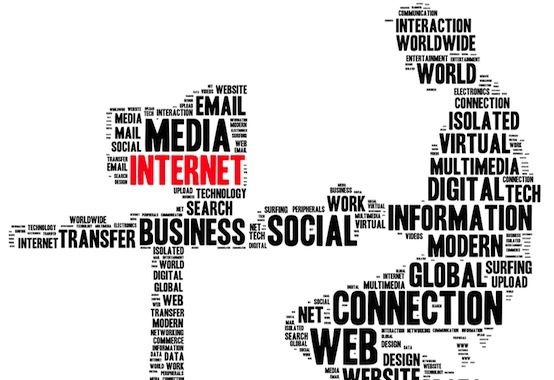Amazon, the Internet, and Online Hype

Haven’t you heard? Amazon is debuting its very own delivery-by-drone. So Jeff Bezos revealed to Charlie Rose in last night’s Cyber Monday infomercial “60 Minutes” report. In the ensuing commentary on Twitter, though, McKay Coppins of Buzzfeed noted that
Lots of these Amazon drone tweets remind me of this 1995 Newsweek essay on how the whole internet thing is hype: https://t.co/IpelTyr2r8
— McKay Coppins (@mckaycoppins) December 2, 2013
Clifford Stoll’s 1995 essay quickly circulated as the epitome of myopic grouching, with Scott Winship of the Manhattan Institute musing
Seriously, this ’95 Newsweek column on internet-boosting hucksters may be least prescient thing ever written https://t.co/QJw94jIgau
— Scott Winship (@swinshi) December 2, 2013
Yet not all of Stoll’s criticisms are wholly wrongheaded, and pulling apart what he got (very) wrong from what still stands can teach us about technology’s ability to live up to the hype. Back in February 1995, Michael Jordan was a baseball player, the Dow Jones was hitting 4,000 for the very first time, and Pamela Anderson was joined in holy matrimony with Motley Crue drummer Tommy Lee. Stoll looked around himself, and wrote that
Visionaries see a future of telecommuting workers, interactive libraries and multimedia classrooms. They speak of electronic town meetings and virtual communities. Commerce and business will shift from offices and malls to networks and modems. And the freedom of digital networks will make government more democratic.
The funny thing is, that’s exactly what many futurists of today are still heralding, nearly 20 years later. Given the pace of digital advancements and the rapid development of internet technology, you would hope they’d have a new future to sell us on, once the old one was thoroughly obtained. Then Stoll got himself in his first sticky situation, saying “The truth in [sic] no online database will replace your daily newspaper, no CD-ROM can take the place of a competent teacher and no computer network will change the way government works.” As Jeff Bezos himself can attest, the daily newspaper is not faring well compared to its online competition. Yet Stoll’s second two points are sound. For all the MOOC hype, teaching really is a fundamentally human activity, born of interaction and guidance, response and customization. Information may be able to be transmitted and tested online, but an education will only be obtained from a teacher. And as much as the digital age has changed parts of our politics, the tasks of governance and compromise have remained stubbornly resistant to solution by algorithm. If anything, the internet has given the government new things to fail at.
He then gives us another peek of 1995,
What the Internet hucksters won’t tell you is th[a]t the Internet is one big ocean of unedited data, without any pretense of completeness. Lacking editors, reviewers or critics, the Internet has become a wasteland of unfiltered data. … Logged onto the World Wide Web, I hunt for the date of the Battle of Trafalgar. Hundreds of files show up, and it takes 15 minutes to unravel them—one’s a biography written by an eighth grader, the second is a computer game that doesn’t work and the third is an image of a London monument.
Stoll is describing an internet many of us can barely still remember: pre-Google, pre-Wikipedia: neither organization would exist for years. Given its forays into self-driving cars and defying death, it is easy to forget how resoundingly Google has accomplished its self-described mission: “to organize the world’s information and make it universally accessible and useful.” That doesn’t make Stoll right about the internet’s potential at the time; in fact it highlights just how wrong he was, as he himself noted in this comment after the piece resurfaced a few years ago.
Where he really got himself in trouble, though, was online commerce:
We’re promised instant catalog shopping—just point and click for great deals. We’ll order airline tickets over the network, make restaurant reservations and negotiate sales contracts. Stores will become obselete. So how come my local mall does more business in an afternoon than the entire Internet handles in a month?
This was written virtually simultaneously with Jeff Bezos launching Amazon.com. Stoll went on to say “Even if there were a trustworthy way to send money over the Internet—which there isn’t—the network is missing a most essential ingredient of capitalism: salespeople.” It turns out the salespeople weren’t such an essential ingredient of capitalism after all; in fact, we just wanted to get away from them.
His objections, though, proceeded out of a very legitimate concern: “What’s missing from this electronic wonderland? Human contact.” He continued, “A network chat line is a limp substitute for meeting friends over coffee. No interactive multimedia display comes close to the excitement of a live concert. And who’d prefer cybersex to the real thing?” The first is true to the extent you can get your friends offline and into the coffee shop, the second is undeniable, and the third only holds true (so far) in Japan.
Clifford Stoll was wrong, then, by his own admission and the evaluation of anyone with a modem. But he was not objecting out of Luddism and inexperience. He opened his piece “After two decades online, I’m perplexed.” Two decades from 1995 puts him in on the ground floor of the web. Stoll caught a KGB agent hacking into the Berkeley computers in the 1980s in one of the first recorded instances of digital forensics, and held a Ph.D. in physics. Today he even has a TED talk.
By comparing his 1995 missive with our current state, we can gain the perspective to take both techno-skepticism and futurist promises with heaping handfuls of salt.
Comments